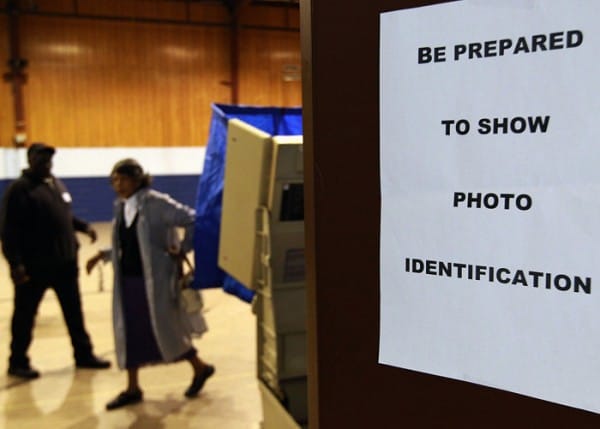GOP Lawmaker Introduces Less Restrictive Voter ID Bill in Wisconsin

Credit: CHRIS KNIGHT, The Patriot-News

In reaction to the many restrictive laws passed in 2012, there has been an influx of new laws to enhance voter participation in 2013. However, in Wisconsin, the voter ID law battle is back.
In 2011, the Wisconsin Legislature passed a law requiring voters to show "acceptable government-sanctioned photo identification either at the polls or to election officials" to be allowed to vote. This law, which requires specific types of photo ID, including a state-issued ID card, valid driver’s license, U.S. passport, or a student ID that expires within two years, was considered to be one of the most restrictive in the country.
The League of Women Voters filed a lawsuit against the state for violating Wisconsin's Constitution and in May 2012, a judge struck down the law. He ruled that the voter ID requirement created an additional qualification to have the right to vote and thereby violated Article III of the state's constitution.
In July 2012, a second judge struck the law down because the potential burden on voters was too great compared to the risk of voter fraud.
However, on Thursday, the Fourth District Court of Appeals in Madison overturned the ruling and in an unanimous decision considered the law to be constitutional. However, this will not be enough to reinstate the law. An appeal against the second court decision remains pending as well as two federal cases.
This decision comes at the same time state Rep. Jeff Stone, sponsor of the original law, introduced a new bill in the Legislature that modifies the voter ID requirements to conform with the initial court decision.
The new bill would allow people to avoid the ID requirement by signing an affidavit saying they are too poor to pay for the fees of an ID, they have a religious reason not to be photographed for an ID, or they could not provide the proper documentation to receive an ID.
While this bill offers relaxed conditions to vote, the conditions under which the affidavit can be made have already been criticized for their demeaning character.
With the recent court decision, however, the future of the bill in the Legislature remains uncertain considering the bill also brings major electoral changes with regards to campaign funding, early voting, and absentee ballots, which will likely be fought by the Democratic caucus in Wisconsin.
Twenty-two states currently have legislation requiring voter ID or making an already existing voter ID law more restrictive pending in their legislature. The recent developments in Wisconsin may bring some clarity as to what requirements a state legislature can create for voters.



